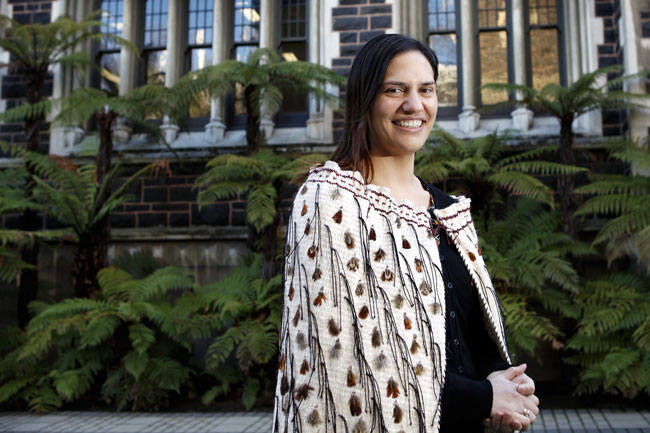Tuesday 13 November 2018 5:30pm

Dr Karyn Paringatai, from the University of Otago's Te Tumu – School of Maori, Pacific and Indigenous Studies, says a Marsden Fund grant will help her tell the human story of a rare gene that dramatically increases the risk of stomach cancer.
“The hereditary mutation in the CDH1 gene has caused immense heartbreak and pain spanning across generations amongst many whānau throughout New Zealand. While the focus has been on the scientific research involved to discover the mutation and the clinical treatment options available, the human experience has been forgotten and how this impacts on whānau and whakapapa.
“As a carrier of this gene this is not my journey alone to endure but is also that of countless others. We each have a story that needs to be told and shared – the Marsden research funding will enable me to do that; this funding is for them.”
Project Summary: Project Title: E kore au e ngaro! The enduring legacy of whakapapa (awarded $823,000).
I have a genetic mutation, inherited from my father, which used to give me an 80% chance of developing diffuse gastric cancer (cancer that occurs in the stomach lining that is undetectable until it has advanced to an incurable stage).
That chance is now 0% because, in 2010, I had my stomach removed.
My father moved from the East Coast of the North Island to Invercargill in the 1960s where I was born and raised. During my upbringing I had minimal contact with members of my whānau (extended Māori kin group) and limited knowledge of my whakapapa.
I was 11 when I first realised that I should engage with it but it took 10 years before I started to do so.
I am fortunate I did, because without knowledge of my whakapapa I would most likely be dead. Not knowing it almost killed me. This study aims to assess the socio-cultural impact of the interrelationship between whakapapa and genetic research.
Through the lens of whānau with a CDH1 mutation, this study will investigate the role of whakapapa in empowering whānau to make informed decisions about their future, the experiences of whānau with a CDH1 mutation and culturally-responsive genetic research.